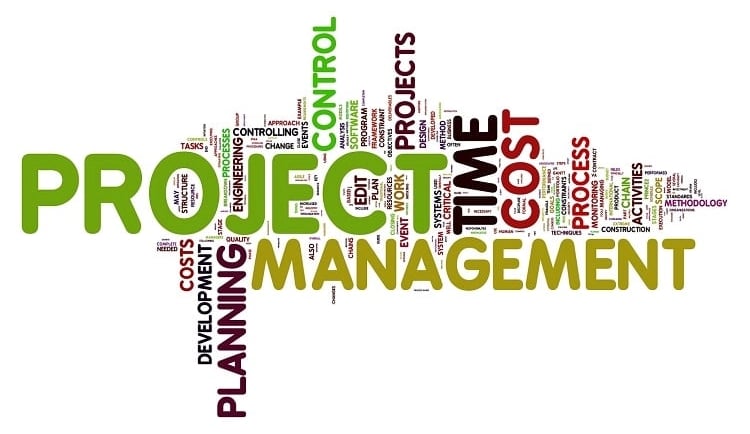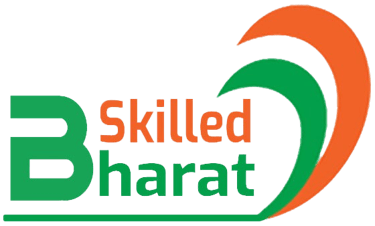Project management
Project management in todays world
4/20/20257 min read


Mastering Project Management: A Guide to Success
Project management is the backbone of successful ventures, whether you're launching a startup, building software, or organizing a community event. It’s about turning ideas into reality through structured planning, execution, and monitoring. This blog explores key principles, methodologies, certifications (including Primavera P6), approximate fee structures, benefits for students, and tips to excel in project management.
What is Project Management?
Project management involves planning, organizing, and overseeing tasks to achieve specific goals within a set timeframe and budget. It balances scope, time, cost, quality, and resources while managing risks and stakeholder expectations. Effective project management ensures deliverables meet objectives and stakeholders are satisfied.
Core Principles of Project Management
Define Clear Objectives: Start with a clear project scope and SMART goals (Specific, Measurable, Achievable, Relevant, Time-bound). A well-defined scope prevents scope creep and keeps the team focused.
Plan Thoroughly: Break the project into manageable tasks using a Work Breakdown Structure (WBS). Estimate time, resources, and dependencies to create a realistic schedule.
Communicate Effectively: Transparent communication with stakeholders and team members builds trust and ensures alignment. Use tools like Slack, Microsoft Teams, or regular status meetings to keep everyone informed.
Monitor and Adapt: Track progress with Key Performance Indicators (KPIs) like budget adherence or milestone completion. Be ready to adjust plans when risks or changes arise.
Engage Your Team: Motivate and empower team members by assigning roles that match their strengths. Foster collaboration and address conflicts promptly.
Popular Project Management Methodologies
Different projects call for different approaches. Here are three widely used methodologies:
Waterfall: A linear approach where each phase (e.g., planning, execution, testing) is completed before moving to the next. Ideal for projects with fixed requirements, like construction.
Agile: An iterative method that emphasizes flexibility and collaboration. Teams work in short cycles (sprints) to deliver small, functional increments. Suited for software development.
Scrum: A subset of Agile, Scrum uses fixed-length sprints and defined roles (e.g., Scrum Master, Product Owner) to manage tasks. It’s great for dynamic, team-driven projects.
Choose a methodology based on your project’s complexity, team size, and stakeholder needs.
Project Management Certifications and Approximate Fee Structures
Certifications enhance your skills and credibility as a project manager. Below are globally recognized certifications, including Primavera P6, with approximate costs in USD and INR (₹) for exams and training (as of 2025, subject to change). Costs vary by region, provider, and whether you opt for self-study, online, or classroom training. INR conversions are approximate, based on an exchange rate of 1 USD = ₹85 (check current rates). Always verify pricing on official websites.
Project Management Professional (PMP) by PMI
Description: Ideal for experienced professionals, covering project initiation, planning, execution, monitoring, and closing. Based on PMI’s PMBOK framework.
Requirements: 35 hours of training, plus 36 months of project management experience with a bachelor’s degree (or 60 months with a high school diploma).
Exam Fee: ~$425 (₹36,125) for PMI members, ~$575 (₹48,875) for non-members. PMI membership: ~$159/year (₹13,515/year).
Training Cost: $500–$2,000 (₹42,500–₹1,70,000) for online or classroom courses from PMI Authorized Training Partners.
Renewal: Every 3 years, requires 60 Professional Development Units (PDUs). Renewal fee: ~$60 (₹5,100) for members, ~$150 (₹12,750) for non-members.
Certified Associate in Project Management (CAPM) by PMI
Description: Entry-level certification for those new to project management, focusing on PMBOK fundamentals.
Requirements: 23 hours of project management education (no experience required).
Exam Fee: ~$225 (₹19,125) for PMI members, ~$300 (₹25,500) for non-members.
Training Cost: $300–$1,000 (₹25,500–₹85,000) for online or classroom.
Renewal: Every 5 years, requires re-examination or PDUs.
PRINCE2 Foundation and Practitioner by AXELOS
Description: Popular in the UK and Europe, PRINCE2 emphasizes structured processes. Foundation is for beginners; Practitioner suits experienced managers.
Requirements: No prerequisites for Foundation; Practitioner requires Foundation or equivalent (e.g., PMP, CAPM).
Exam Fee: Foundation: ~$350–$500 (₹29,750–₹42,500); Practitioner: ~$450–$600 (₹38,250–₹51,000) via providers like PeopleCert.
Training Cost: Foundation: $500–$1,200 (₹42,500–₹1,02,000); Practitioner: $600–$1,500 (₹51,000–₹1,27,500). Combined: ~$1,000–$2,500 (₹85,000–₹2,12,500).
Renewal: Practitioner requires renewal every 3 years via re-examination or CPD points (~$450–$600; ₹38,250–₹51,000).
APM Project Management Qualification (PMQ) by APM
Description: UK-based, equivalent to PRINCE2 Practitioner. Covers project management lifecycle and APM Body of Knowledge, ideal for mid-level professionals.
Requirements: Some project management experience recommended but not mandatory.
Exam Fee: ~$600–$800 (₹51,000–₹68,000) via providers.
Training Cost: $1,000–$2,500 (₹85,000–₹2,12,500) for 5-day classroom or 35-hour online.
Renewal: No formal renewal, but APM membership (~$150/year; ₹12,750/year) encourages CPD.
Certified ScrumMaster (CSM) by Scrum Alliance
Description: Focuses on Scrum methodology for Agile environments, ideal for IT and software projects.
Requirements: 2-day training course (no prior experience required).
Exam Fee: Included in training cost (~$995–$1,500; ₹84,575–₹1,27,500) for the 2-day course.
Training Cost: Included in the course fee.
Renewal: Every 2 years, requires 20 Scrum Education Units (SEUs). Renewal fee: ~$100 (₹8,500).
AgilePM by APMG International
Description: Combines Agile principles with project management rigor, suited for Agile project managers.
Requirements: No prerequisites for Foundation; Practitioner requires Foundation.
Exam Fee: Foundation: ~$300–$450 (₹25,500–₹38,250); Practitioner: ~$400–$600 (₹34,000–₹51,000).
Training Cost: Foundation: $500–$1,200 (₹42,500–₹1,02,000); Practitioner: $600–$1,500 (₹51,000–₹1,27,500). Combined: ~$1,000–$2,500 (₹85,000–₹2,12,500).
Renewal: No formal renewal, but CPD recommended.
Primavera P6 Professional/EPPM by Oracle
Description: Focuses on Oracle’s Primavera P6 software, widely used for planning, scheduling, and controlling complex projects in construction, engineering, and IT. The Primavera P6 Enterprise Project Portfolio Management (EPPM) Implementation Certified Professional certification validates advanced skills in P6 EPPM features like dashboards and portfolio management. Basic P6 Professional certifications are often course-based, requiring no exam.
Requirements: No formal prerequisites, but familiarity with project management principles is beneficial. EPPM certification requires passing an Oracle exam.
Exam Fee: EPPM exam: ~$500–$700 (₹42,500–₹59,500) via Oracle University. Course-based P6 certifications: Often included in training cost.
Training Cost: $1,000–$3,000 (₹85,000–₹2,55,000) for 2–5 day courses (online or classroom, e.g., CADD Centre, Koenig Solutions, Udemy). Some providers offer free introductory courses (e.g., SmartPMTraining).
Renewal: No formal renewal for course-based certifications. EPPM certification may require staying updated with software versions.
Notes on Costs:
Many providers offer student discounts (e.g., PMI’s student membership for ~$32/year; ₹2,720/year reduces exam fees).
Online training is often cheaper than classroom courses.
Some certifications include training in the exam fee (e.g., CSM, some Primavera P6 courses).
Costs exclude taxes, study materials, or travel for in-person courses.
Check official websites (PMI.org, apm.org.uk, axelos.com, scrumalliance.org, apmg-international.com, oracle.com) for exact pricing and discounts. Benefits of Project Management Certifications for Students
Pursuing project management certifications, including Primavera P6, as a student offers numerous advantages, both academically and professionally:
Enhanced Employability: Certifications like CAPM, PRINCE2 Foundation, CSM, or Primavera P6 make you stand out to employers, even with limited work experience. Primavera P6 is especially valuable in industries like construction, engineering, and IT, where it’s a standard tool for managing complex projects.
Practical Skill Development: Certifications teach real-world skills like time management, budgeting, risk analysis, and team collaboration. Primavera P6 training equips students with hands-on software skills for scheduling, resource allocation, and progress tracking, applicable to academic projects or internships.
Global Recognition: Certifications from PMI, APM, Scrum Alliance, and Oracle are recognized worldwide, giving students a competitive edge in diverse industries, from tech to energy. Primavera P6 certifications are valued by global corporations like Oracle, IBM, and Accenture.
Career Head Start: Entry-level certifications (e.g., CAPM, PRINCE2 Foundation, Primavera P6 course-based) have minimal or no experience requirements, making them accessible to students. They pave the way for advanced certifications like PMP or Primavera P6 EPPM later.
Networking Opportunities: Joining organizations like PMI, APM, or Oracle University connects students to professional communities, events, and mentorship programs. These networks can lead to internships or job referrals.
Improved Academic Performance: Project management principles, including Primavera P6’s scheduling tools, help students manage coursework, meet deadlines, and coordinate group assignments more effectively. Tools like Trello or Primavera P6 can streamline study workflows.
Flexibility Across Industries: Project management skills, especially with Primavera P6, are transferable, allowing students to explore careers in construction, IT, healthcare, and more. Primavera P6’s portfolio management capabilities suit diverse project types.
Cost-Effective Investment: Student discounts on memberships, exams, and training (e.g., PMI, Oracle University) make certifications affordable. The long-term career benefits, such as higher salaries (Primavera P6 professionals in India earn ₹3–20 lakhs/year), outweigh initial costs.
Tips for Students:
Start with beginner-friendly certifications like CAPM, PRINCE2 Foundation, or Primavera P6 Professional Fundamentals.
Leverage free resources (e.g., PMI’s PMBOK excerpts, Oracle’s free P6 tutorials) to supplement paid training.
Apply skills to university projects or volunteer roles to build a portfolio.
Check with your university for partnerships with PMI, APM, or Oracle, which may offer discounted courses or credits.
Tools for Project Management
Modern project management relies on tools to streamline workflows. Popular options include:
Primavera P6: Oracle’s industry-standard software for planning, scheduling, and controlling large-scale projects. Ideal for construction, engineering, and IT, it supports Work Breakdown Structures, resource allocation, and risk management.
Trello: A visual, Kanban-based tool for task tracking, great for student group projects.
Asana: Ideal for managing tasks and team collaboration, with free tiers for students.
Microsoft Project: Robust for detailed scheduling, often available via university licenses.
Jira: Tailored for Agile and Scrum in software development, useful for tech students.
Select tools that align with your team’s workflow and project complexity. Many offer student discounts or free versions.
Tips for Effective Project Management
Prioritize Risk Management: Identify risks early and create mitigation plans. For example, use Primavera P6’s risk analysis tools to track potential issues in complex projects.
Use Data to Drive Decisions: Leverage project analytics to monitor progress and predict outcomes. Primavera P6’s reporting features provide data-driven insights for decision-making.
Celebrate Milestones: Recognize team achievements to maintain morale. Even small wins, like completing a project phase, deserve acknowledgment.
Learn from Each Project: Conduct a post-mortem after completion to evaluate what worked and what didn’t. Document lessons learned for future projects.
Common Challenges and How to Overcome Them
Scope Creep: Stick to the defined scope and use change request processes for new requirements. Primavera P6’s WBS helps maintain scope clarity.
Resource Constraints: Optimize resource allocation and negotiate for additional support. Primavera P6’s resource management tools maximize efficiency.
Miscommunication: Establish clear communication channels and document decisions in a shared repository, like Primavera P6’s collaboration features.
Conclusion
Project management is both an art and a science, blending leadership, strategy, and adaptability. For students, certifications like CAPM, PRINCE2, CSM, and Primavera P6 offer a gateway to valuable skills, career opportunities, and academic success. By setting clear goals, choosing the right methodology, leveraging tools like Primavera P6, and pursuing certifications, you can navigate challenges and deliver successful outcomes. Start your project management journey today, and turn your vision into reality!
